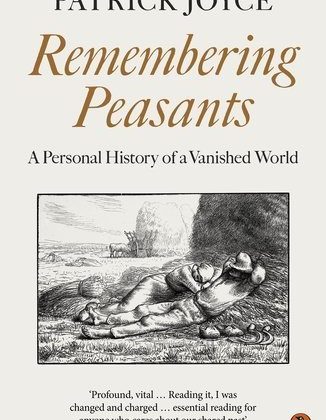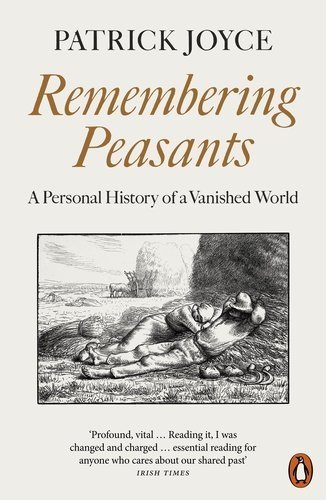

Check out Gus Mitchell’s review of Patrick Joyce’s Remembering Peasants: A Personal History of a Vanished World.
A taste:
Joyce explores five key relationships of this peasant world: to the society of the village or commune, to the family and the home, to the natural world, to the divine, and to suffering—still popularly understood as the old peasants’ lot in life. Joyce never romanticizes the “bent by toil” nature of peasant work: the terrifyingly total reliance on the body as “a finite and precious resource.” Hunger, death, destitution, and chaos were all immanent realities, never more than a blight or a pillaging army away. As one of the many direct peasant accounts which the work cites has it, poverty and despair were figured the “‘bitch’…ever ready to pounce.”
It was not only nature with which one had to contend. The bailiff and the land agent, the tax official and the press gang—endless human malevolence might also be “ready to pounce.” In the face of the powerful, which they were not, and of nature—vast and wild beyond comprehension—peasants had the strength of belonging, or, in Joyce’s more imaginative formulation, “dwelling.” The peasant obsession with owning land to pass down to one’s descendants, and the peasant sense of “the house” containing a “cosmological significance” both stem from this deep practice in, and understanding of, dwelling. It is not only the house, but the world that surrounds and encloses the house, “the farm unfolding…to the fields, then the mountains, the forests, the wastelands.” And it was not only space that extended, but time, since dwelling in one place requires relationships across time to the dead: “At the same as the living watch over the dead, the dead watch over and care for the living.”
A peasant was located, both in space and in time, and experienced nature through the repetitions of the farming calendar in a particular place. To give a better sense of the worldview such intimacy with the land nurtured, Joyce quotes the opening of a study on Polish peasants, first published in 1958: “Every field knows its owner, the Earth is indignant at every crime committed on its face.… Nothing bad should be said near water. The wind listens and talks.… While animals do not know as much as man they know things he does not.”
Nature, in other words, was urgently animate, and, as Joyce writes, “the natural, the spirits and God, in practice, merged one into the other” in the peasant’s “threefold” view of things. When someone died, for instance, it would be necessary to patrol the farm and inform all the animals, possibly the house and out-buildings too. We could dismiss this as ritual superstition, or we could view it as the peasant did—as an interactive engagement with the extended world.
Read the entire piece here.